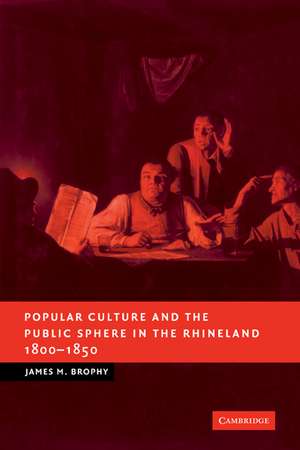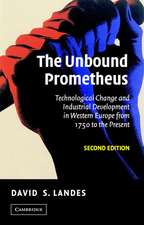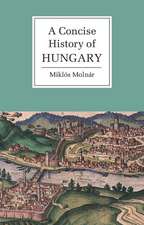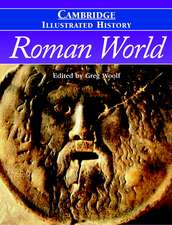Popular Culture and the Public Sphere in the Rhineland, 1800–1850: New Studies in European History
Autor James M. Brophyen Limba Engleză Paperback – 16 dec 2009
| Toate formatele și edițiile | Preț | Express |
|---|---|---|
| Paperback (1) | 330.09 lei 6-8 săpt. | |
| Cambridge University Press – 16 dec 2009 | 330.09 lei 6-8 săpt. | |
| Hardback (1) | 513.10 lei 6-8 săpt. | |
| Cambridge University Press – 8 aug 2007 | 513.10 lei 6-8 săpt. |
Din seria New Studies in European History
-
 Preț: 177.91 lei
Preț: 177.91 lei -
 Preț: 238.02 lei
Preț: 238.02 lei -
 Preț: 208.50 lei
Preț: 208.50 lei -
 Preț: 398.42 lei
Preț: 398.42 lei -
 Preț: 237.92 lei
Preț: 237.92 lei - 9%
 Preț: 593.91 lei
Preț: 593.91 lei -
 Preț: 180.06 lei
Preț: 180.06 lei - 9%
 Preț: 592.61 lei
Preț: 592.61 lei -
 Preț: 169.70 lei
Preț: 169.70 lei -
 Preț: 211.13 lei
Preț: 211.13 lei -
 Preț: 166.99 lei
Preț: 166.99 lei -
 Preț: 266.53 lei
Preț: 266.53 lei -
 Preț: 241.90 lei
Preț: 241.90 lei -
 Preț: 429.99 lei
Preț: 429.99 lei -
 Preț: 400.05 lei
Preț: 400.05 lei - 11%
 Preț: 698.50 lei
Preț: 698.50 lei -
 Preț: 275.85 lei
Preț: 275.85 lei - 11%
 Preț: 695.93 lei
Preț: 695.93 lei -
 Preț: 423.10 lei
Preț: 423.10 lei -
 Preț: 340.13 lei
Preț: 340.13 lei - 11%
 Preț: 698.30 lei
Preț: 698.30 lei -
 Preț: 326.82 lei
Preț: 326.82 lei -
 Preț: 339.37 lei
Preț: 339.37 lei -
 Preț: 396.59 lei
Preț: 396.59 lei -
 Preț: 383.48 lei
Preț: 383.48 lei -
 Preț: 292.40 lei
Preț: 292.40 lei - 14%
 Preț: 682.94 lei
Preț: 682.94 lei -
 Preț: 282.75 lei
Preț: 282.75 lei -
 Preț: 417.07 lei
Preț: 417.07 lei -
 Preț: 437.18 lei
Preț: 437.18 lei - 14%
 Preț: 873.67 lei
Preț: 873.67 lei -
 Preț: 420.40 lei
Preț: 420.40 lei -
 Preț: 319.99 lei
Preț: 319.99 lei - 14%
 Preț: 687.39 lei
Preț: 687.39 lei -
 Preț: 397.01 lei
Preț: 397.01 lei - 11%
 Preț: 695.93 lei
Preț: 695.93 lei - 11%
 Preț: 543.84 lei
Preț: 543.84 lei
Preț: 330.09 lei
Nou
Puncte Express: 495
Preț estimativ în valută:
63.17€ • 65.71$ • 52.15£
63.17€ • 65.71$ • 52.15£
Carte tipărită la comandă
Livrare economică 15-29 aprilie
Preluare comenzi: 021 569.72.76
Specificații
ISBN-13: 9780521123921
ISBN-10: 0521123925
Pagini: 384
Dimensiuni: 152 x 229 x 22 mm
Greutate: 0.56 kg
Ediția:New.
Editura: Cambridge University Press
Colecția Cambridge University Press
Seria New Studies in European History
Locul publicării:Cambridge, United Kingdom
ISBN-10: 0521123925
Pagini: 384
Dimensiuni: 152 x 229 x 22 mm
Greutate: 0.56 kg
Ediția:New.
Editura: Cambridge University Press
Colecția Cambridge University Press
Seria New Studies in European History
Locul publicării:Cambridge, United Kingdom
Cuprins
Introduction: popular culture and the public sphere; 1. Reading; 2. Singing; 3. Public space; 4. Carnival; 5. Tumult; 6. Religion; Conclusion: joining the political nation; Bibliography; Index.
Recenzii
Reviews of the hardback: 'Throughout the book, the author demonstrates the interconnectedness of bourgeois and plebeian worlds in the formation of opinion. How did common people come by political information, learn to grasp post-revolutionary ideas and ideologies, and become part of civil society? What was the process by which they became citizens in the classical political sense? An impressive array of archival and published material from the formerly French Rhineland has been marshalled …' Journal of Central European History
'This book is essential reading for anyone with an interest in expressions of public culture in the decades leading up to the 1848 revolution. … It is a well presented book with illustrations and photographs and, most usefully for an international readership, all German quotations translated into English.' Song and Popular Culture
'… impressively combines social and political theory with empirical research, ably weaving and organizing the results of years of work in the archival trenches into a well-crafted monograph … This is certainly an informative case study that should be read and studied by all scholars of modern Germany …' Journal of Modern History
'The study, deeply embedded in the many appropriate strands of scholarship and painstaking archival research, is divided into six substantive and mesmerizing chapters. …The author rounds out the book with absorbing chapters on the roles of singing, carnival, tumult, and religion. …An eminently readable treat for most German and many European historians …' The Historian
'This book is essential reading for anyone with an interest in expressions of public culture in the decades leading up to the 1848 revolution. … It is a well presented book with illustrations and photographs and, most usefully for an international readership, all German quotations translated into English.' Song and Popular Culture
'… impressively combines social and political theory with empirical research, ably weaving and organizing the results of years of work in the archival trenches into a well-crafted monograph … This is certainly an informative case study that should be read and studied by all scholars of modern Germany …' Journal of Modern History
'The study, deeply embedded in the many appropriate strands of scholarship and painstaking archival research, is divided into six substantive and mesmerizing chapters. …The author rounds out the book with absorbing chapters on the roles of singing, carnival, tumult, and religion. …An eminently readable treat for most German and many European historians …' The Historian
Descriere
A study of the politicisation of 'ordinary people' in western Germany in the 1850s.













